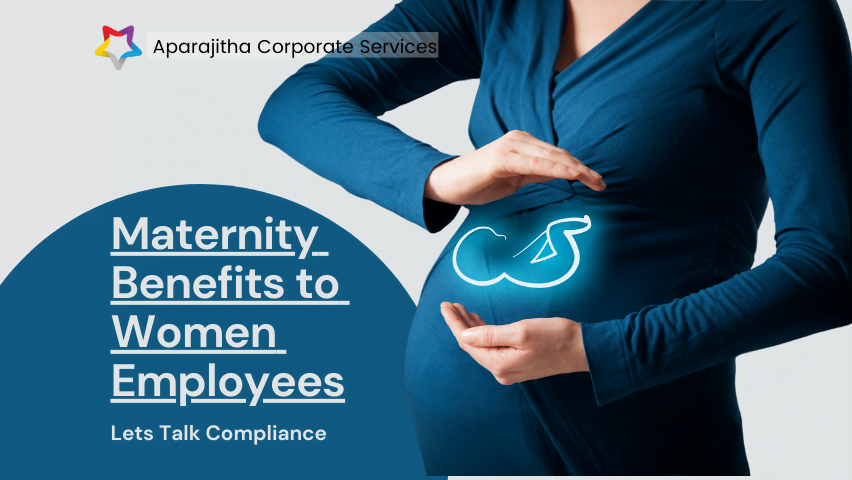Women employees are entitled to various maternity benefits under the Maternity Benefit Act, 1961 & ESI Act, 1948
Ensuring Zero Hindrance for Women’s Participation in the Workforce
To monetarily support women employees during pregnancy and after childbirth, Indian law makes it mandatory for the applicable establishments to offer due maternity benefits to women employees. The Maternity benefits in India are mainly governed by the Maternity Benefit Act, 1961 (for non-ESI employees) & Employees’ State Insurance Act, 1948, as per these Act applicability to the Establishments, Factories, and Mines.
- Employers are required to inform women in writing or electronically about the maternity benefits available under the Maternity Benefit Act upon their joining.
- The law allows female employees to work from home in addition to the maternity benefit period if the nature of work allows that.
Wages and leaves
The Maternity Benefit Act provides that a woman will be paid maternity wages at the rate of her average daily wage. However, the woman needs to have worked for the employer for at least 80 days in the 12 months preceding the date of her expected delivery.
The Maternity Benefit Act originally provided maternity benefits of 12 weeks leave, out of which up to six weeks could be claimed before delivery. In 2017, the Act was amended to extend the period to 26 weeks’ leave, of which up to eight weeks of leave can be claimed before delivery.
| S.No | Heading | Before Amendment | After Amendment | New Addition |
| 1 | Pregnancy & Delivery
(Sec 5) |
The Maternity Benefit Act originally provided maternity leave of 12 weeks.
Out of 12 weeks leave, up to six weeks leave could be claimed before delivery (Pre-natal). |
Under the new law, maternity leave is raised to 26 weeks. The pre-natal leave is also extended to eight weeks. A woman with two or more children is entitled to 12 weeks maternity leave only. The prenatal leave, in this case, remains at six weeks. |
– |
| 2 | Payment of Medical Bonus
(Sec 8) |
Every woman entitled to maternity benefit under this Act shall also be entitled to receive from her employer / ESIC a medical bonus of Rs.2500/- if no pre-natal confinement and post-natal care are provided by the employer free of charge. | Every woman entitled to maternity benefits under this Act and shall also be entitled to receive from the employer a medical bonus of Rs.3500/- as per the Maternity Benefit Act & Rs.5000/- as per ESI Act from ESIC if no pre-natal confinement and post-natal care are provided by the employer/ ESIC free of charge. | – |
| 3 | Adoptive / Commissioning mothers
(Sec 5e(4)) |
– | – | The “commissioning mother” and the “Adopting mother” will get the benefit of 12 weeks maternity leave. |
| 4 | Creche Facility
(Sec 11A) |
– | – | Every establishment having fifty or more employees shall have the facility of creche within such distance as may be prescribed, either separately or along with common facilities. |
| 5 | Work-from-home option
Sec 5(5) |
– | – | In the case where the nature of work assigned to a woman is of such nature that she may work from home, the employer may allow her to do so after availing of the maternity benefit for such period and on such conditions as the employer and the woman may mutually agree. |
| 6 | Dismissal during Absence of Pregnancy (Sec 12) | – | – | For a woman who is absent from work in accordance with the provisions of the Maternity Benefit Act, it is unlawful for her employer to discharge or dismiss her during that period of absence. |
The above all such benefits are extended by the ESI Act, 1948 for the ESI-covered women employees who should have contributed for at least 70 days in the preceding two contribution period to the expected delivery date.




